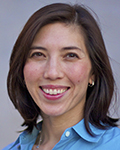2017
Tamara Venit-Shelton
- Associate Professor
- Claremont McKenna College

Abstract
Chinese medicine has a long history in the United States, dating back to America’s colonial period and extending up to the present. Over time, Chinese medicine has both facilitated and undermined the consolidation of medical authority among formally trained, biomedical scientists. Practitioners of Chinese medicine, as a racial embodiment of “irregular” medicine, became a useful foil for “regular” physicians to articulate their superiority. Orientalism had trained the American public to perceive the Chinese as a primitive race, and those assumptions extended to their medical traditions. Chinese doctors, in turn, embraced and successfully employed Orientalist stereotypes to sell their services to non-Chinese patients skeptical of modern biomedicine. What regular physicians labeled unscientific or backwards, Chinese physicians celebrated as ancient, mystical, and closer to nature than biomedicine. This history reveals how “regular” and “irregular” medicine have always been mutually constitutive categories, deriving their boundaries and their authority from one another.

